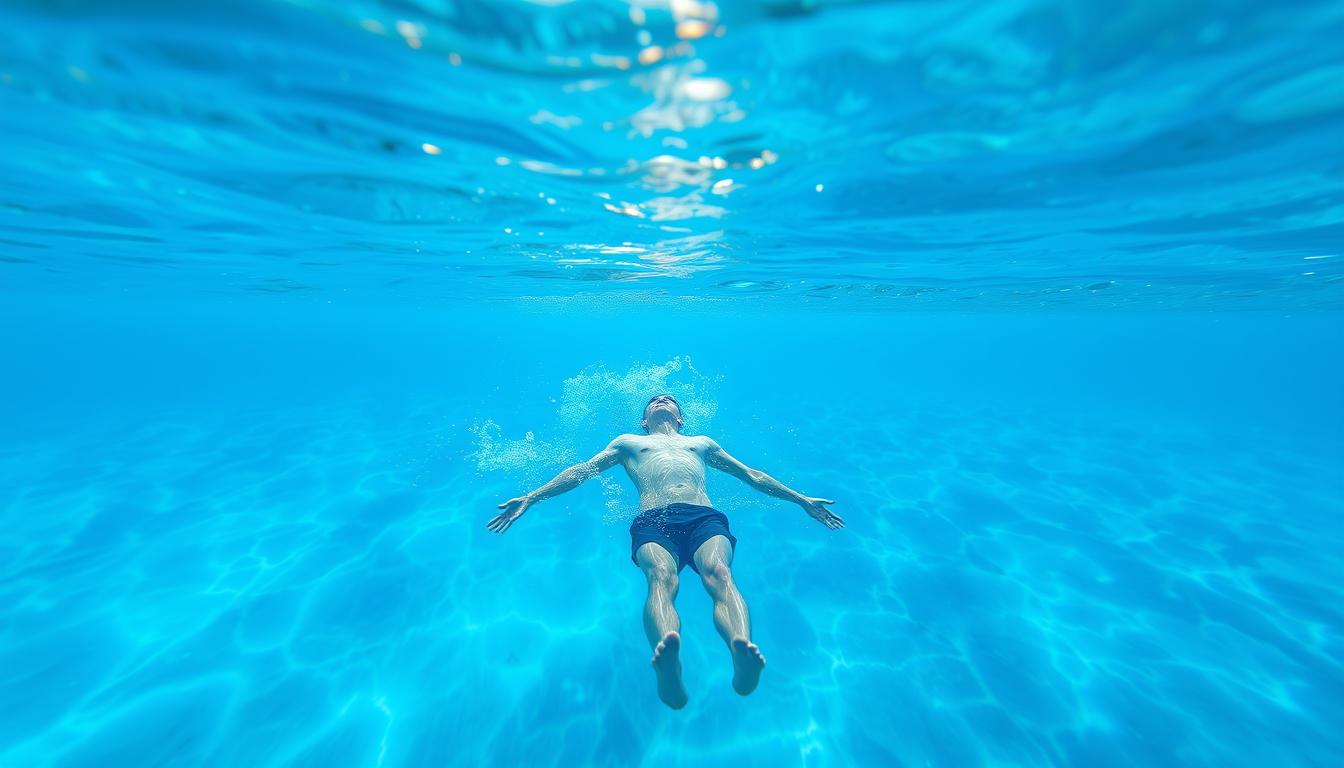
The growing field of “blue health” research is uncovering compelling evidence that time spent in and around seawater offers remarkable benefits for both body and mind. From traditional thalassotherapy (seawater treatments) practiced for centuries to cutting-edge research on ocean biochemistry, the science is clear—being in the ocean can transform your wellbeing in ways that few other natural environments can match.
Physical Health Benefits of Ocean Immersion
The ocean offers a unique combination of elements that work together to enhance physical health. Unlike swimming pools or even freshwater lakes, seawater contains a rich mixture of minerals and compounds that interact with your body in beneficial ways.
Muscle Relaxation and Pain Relief
Seawater is naturally rich in magnesium, a mineral essential for muscle function and relaxation. When you immerse yourself in the ocean, your skin absorbs this magnesium, which can help reduce muscle tension and alleviate pain. This natural mineral absorption explains why people often report feeling physically looser and more relaxed after an ocean swim.
Research suggests that magnesium absorption through the skin may help reduce inflammation and ease conditions like arthritis and muscle cramps. The buoyancy of saltwater also reduces pressure on joints, providing natural relief for those with chronic pain conditions.
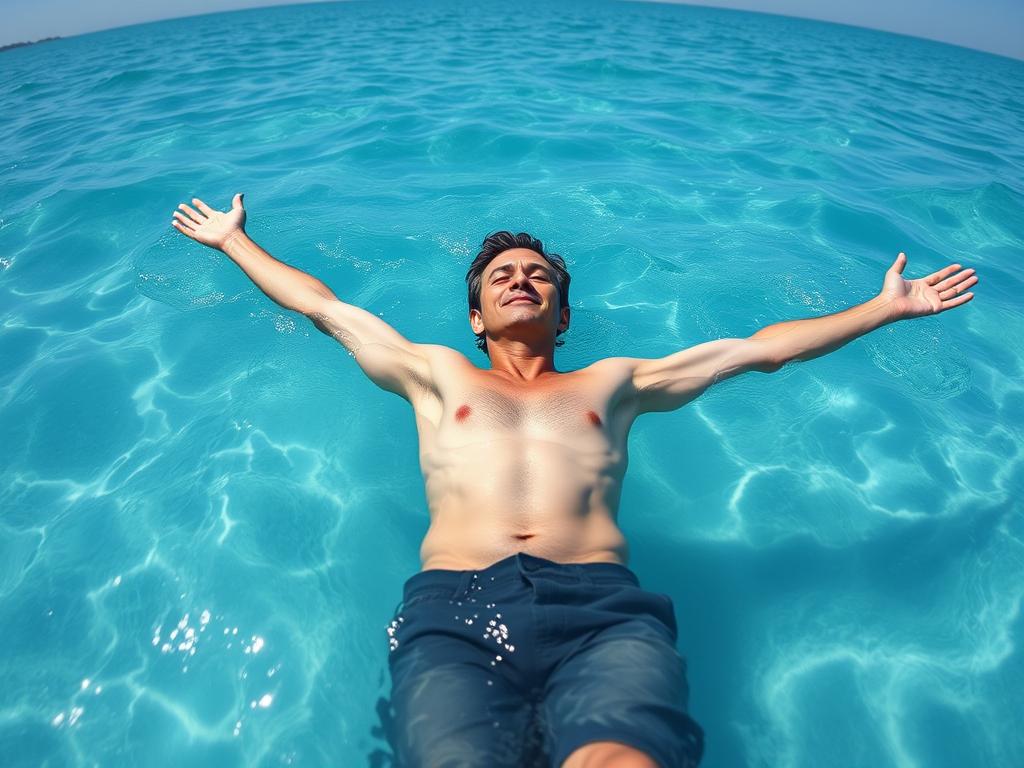
Improved Circulation Through Cold Water Therapy
The often cooler temperature of ocean water provides a natural form of cold therapy that can significantly boost circulation. When you enter cold seawater, blood vessels initially constrict, then dilate as your body warms up again. This process, known as vasodilation, helps flush toxins and improves overall circulation.
A 2019 study found that regular cold water swimmers showed improved cardiovascular health markers, including lower blood pressure and reduced risk of heart disease. The alternating pressure of waves against your body also creates a natural massage effect that further enhances blood flow.
Skin Health Enhancement
The ocean is a natural skincare treatment packed with minerals like zinc, magnesium, and selenium that can improve skin health. These minerals have anti-inflammatory properties that can help conditions like eczema, psoriasis, and acne. The salt in seawater also acts as a natural exfoliant, removing dead skin cells and improving skin texture.
Additionally, ocean water has mild antiseptic properties that can help heal minor cuts and scrapes. Many people report clearer, more radiant skin after regular ocean swimming, which explains the popularity of seawater-based skincare products.
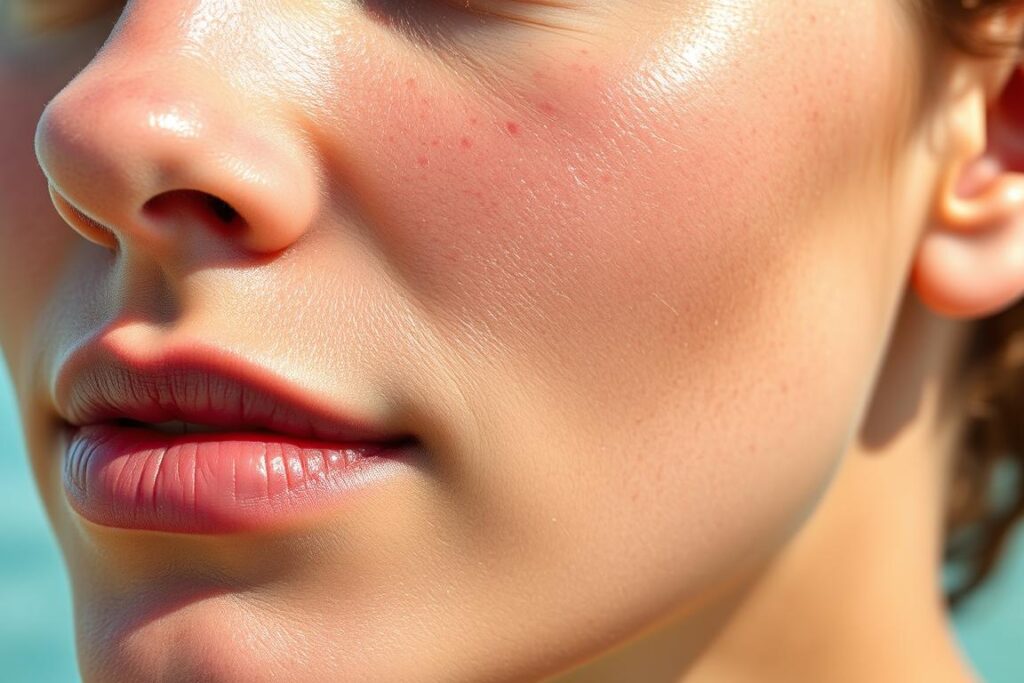
Enhanced Immunity Through Negative Ions
The crashing waves of the ocean create an abundance of negative ions in the surrounding air. These negatively charged particles can increase your body’s ability to absorb and utilize oxygen, potentially boosting your immune system function.
Studies have shown that environments rich in negative ions, like coastal areas, can help reduce the incidence of respiratory infections and improve overall immune response. The combination of salt air, sunlight (vitamin D), and physical activity creates a powerful immune-boosting environment that few other natural settings can match.
Mental Health Benefits of Ocean Immersion
Beyond its physical benefits, the ocean offers profound psychological advantages that can transform mental wellbeing. The combination of sensory experiences creates a unique environment for mental restoration and emotional balance.
Stress Reduction and the “Blue Mind” Effect
Marine biologist Dr. Wallace J. Nichols coined the term “Blue Mind” to describe the mildly meditative state we enter when near, in, on, or under water. This state is characterized by calm, peacefulness, and a sense of general happiness—a direct contrast to the “Red Mind” state of stress and anxiety that many experience in daily life.
Research supports this concept, with studies showing that even just looking at ocean views can lower heart rate and reduce cortisol levels. The rhythmic sound of waves has been found to alter brain wave patterns, promoting relaxation similar to meditation. This explains why ocean sounds are commonly used in relaxation and sleep apps.

Mindfulness and Sensory Engagement
The ocean naturally promotes mindfulness by engaging all your senses simultaneously. The feel of water against your skin, the taste of salt, the sound of waves, the sight of endless blue, and the smell of the sea air create a fully immersive experience that anchors you in the present moment.
This natural mindfulness practice can break cycles of rumination and worry. Research from the University of Exeter found that people reported fewer intrusive thoughts about personal problems while at the beach, instead focusing more on their immediate environment. This sensory “reset” can be particularly beneficial for those with anxiety and depression.
Improved Sleep Quality
The combination of physical exertion from swimming, exposure to negative ions, and the stress-reducing effects of ocean immersion creates perfect conditions for improved sleep. A 2015 study by the National Trust found that people slept an average of 47 minutes longer after spending time by the sea.
The ocean’s ability to reduce anxiety and promote relaxation helps address two major causes of insomnia. Additionally, exposure to natural light at the beach helps regulate your circadian rhythm, the body’s internal clock that controls sleep-wake cycles.

“The water catches your attention with gentle movement and light changes. People with anxiety and depression are able to have less maladaptive rumination while at the beach, thinking more about the natural environment rather than their own issues.”
Unique Therapeutic Elements Only Found in Ocean Environments
While swimming in any body of water offers certain health benefits, the ocean provides unique therapeutic elements that cannot be replicated in pools, lakes, or even man-made saltwater environments.
Saltwater Buoyancy: Beyond the Swimming Pool
The high salt content of seawater—approximately 3.5% compared to freshwater’s 0%—creates significantly greater buoyancy. This natural buoyancy reduces the effects of gravity by up to 90%, allowing for easier movement and placing less strain on joints and muscles.
This makes ocean swimming particularly beneficial for those with arthritis, fibromyalgia, or recovering from injuries. The resistance provided by water combined with reduced gravity creates ideal conditions for low-impact, high-benefit exercise that’s gentler than pool workouts.
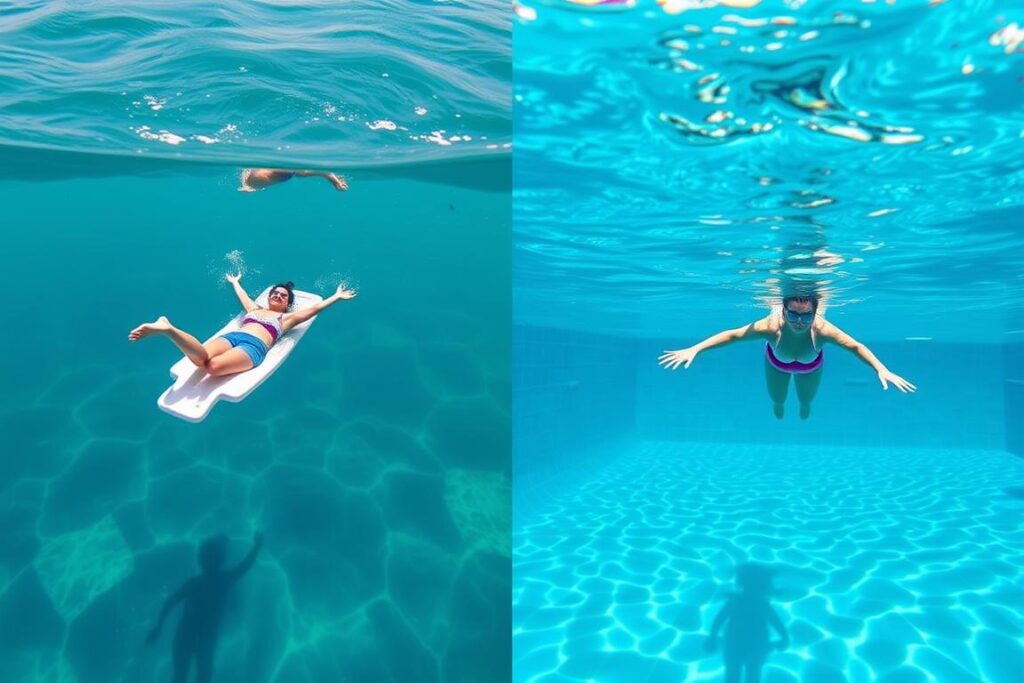
Therapeutic Benefits of Seaweed and Marine Algae
Ocean environments contain various species of seaweed and algae that release beneficial compounds into the water. These marine plants are rich in iodine, antioxidants, amino acids, and anti-inflammatory agents that can be absorbed through the skin during ocean swimming.
The therapeutic properties of seaweed have been recognized for centuries in traditional medicine systems. Modern research confirms that compounds found in marine algae can help improve skin conditions, boost metabolism, and support thyroid function through natural iodine exposure.
Benefits of Walking on Wet Sand
The unique texture of wet sand provides a natural form of reflexology and exfoliation. Walking barefoot on sand creates gentle resistance that strengthens foot, ankle, and leg muscles while the varying texture massages pressure points on the soles of your feet.
This natural foot massage stimulates nerve endings and can help improve circulation throughout the body. Additionally, the slight unevenness of beach terrain engages more muscles than walking on flat surfaces, providing a more comprehensive workout with less perceived effort.
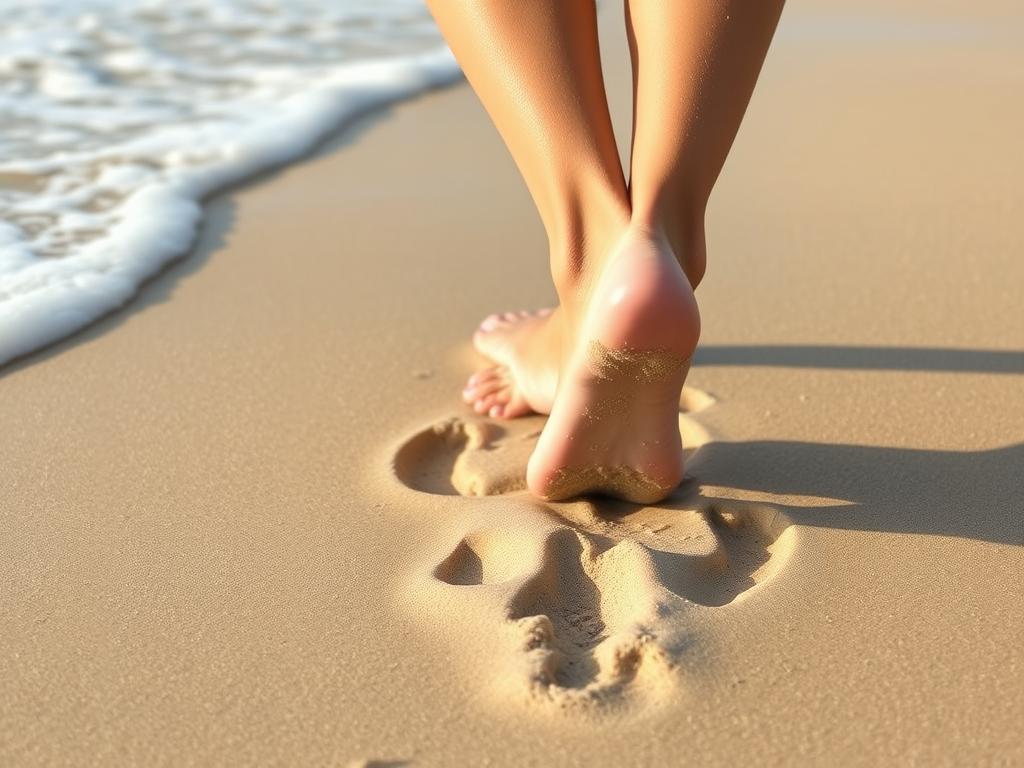
Ocean vs. Swimming Pool
- Higher mineral content (magnesium, potassium, calcium)
- Natural wave resistance for better muscle toning
- No chlorine or harsh chemicals
- Greater buoyancy reduces joint impact
- Constantly changing conditions improve adaptability
Ocean vs. Lakes/Rivers
- Higher salt content improves flotation
- Rich in beneficial minerals not found in freshwater
- Natural antiseptic properties
- Negative ion concentration from breaking waves
- Broader ecosystem diversity with more therapeutic elements
Important Precautions for Safe Ocean Enjoyment
While the health benefits of being in the ocean are substantial, it’s important to approach ocean activities with respect for this powerful natural environment. Taking proper precautions ensures you can enjoy the therapeutic benefits safely.
Sun Protection Essentials
The reflective quality of water can increase UV exposure by up to 25%, making sun protection even more critical during ocean activities. Apply a broad-spectrum, water-resistant sunscreen with SPF 30 or higher at least 15 minutes before entering the water, and reapply every two hours or immediately after swimming.
Consider wearing UV-protective clothing, including rash guards or swim shirts, and don’t forget a wide-brimmed hat and sunglasses with UV protection when out of the water. Remember that cloudy days still allow up to 80% of UV rays to reach your skin.
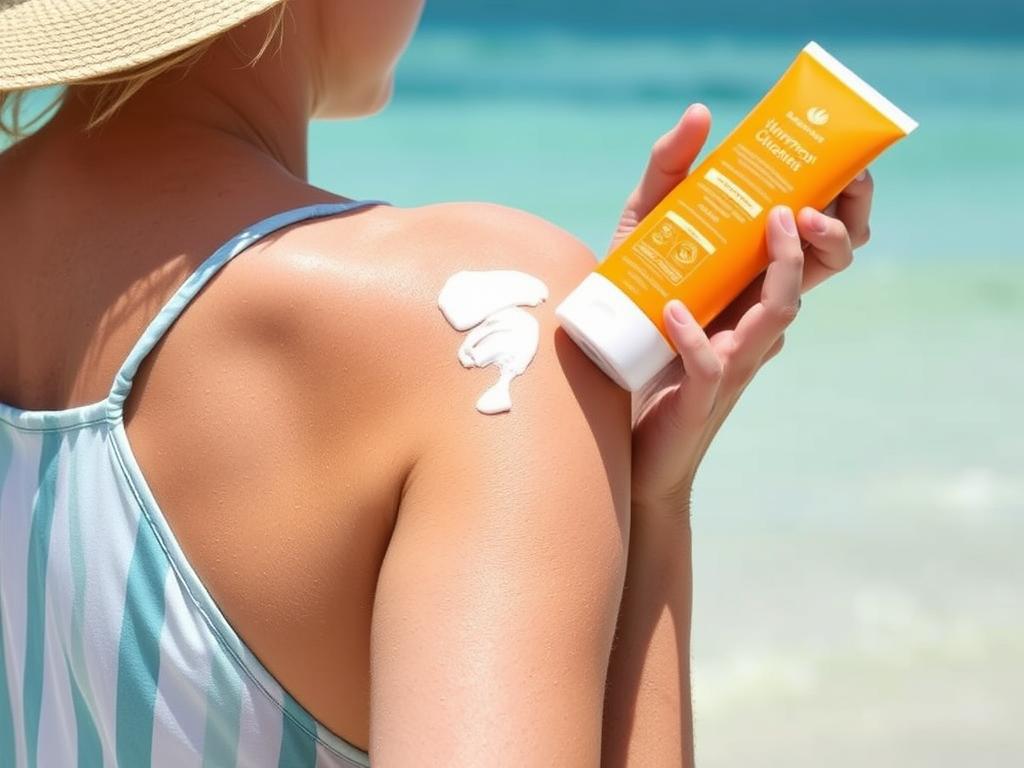
Understanding and Avoiding Rip Currents
Rip currents are powerful, narrow channels of water flowing away from shore that can quickly carry swimmers out to sea. Learn to identify the signs: a channel of churning, choppy water; an area with a noticeably different color; a line of foam or debris moving steadily seaward; or a break in the incoming wave pattern.
If caught in a rip current, remain calm and conserve energy. Swim parallel to the shore until you escape the current, then swim at an angle back to shore. If you can’t escape, float or tread water and call for help. Always swim at beaches with lifeguards and check local conditions before entering the water.
Cold Water Acclimatization Tips
The therapeutic benefits of cold ocean water are substantial, but proper acclimatization is essential to avoid cold shock response, which can cause gasping, hyperventilation, and panic. Begin with brief exposures and gradually increase your time in cold water over multiple sessions.
Enter cold water slowly, allowing your body to adjust. Focus on controlled breathing and never dive headfirst into cold water. Consider wearing a wetsuit in very cold conditions, especially for longer swims, and always have warm, dry clothes ready for after your swim.
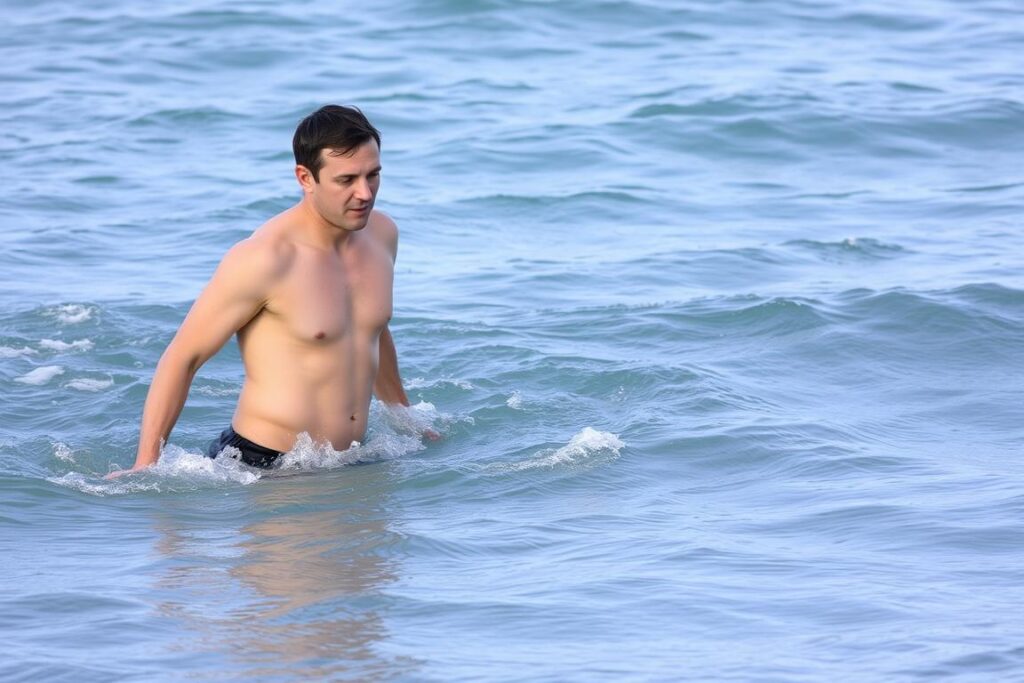
Ocean Safety Checklist
- Check local weather and tide conditions before swimming
- Swim only at beaches with active lifeguard patrols
- Never swim alone, even if you’re experienced
- Stay hydrated—ocean swimming can be deceptively dehydrating
- Be aware of marine life and avoid disturbing natural habitats
- Know your limits and don’t overexert yourself
Embracing the Ocean’s Healing Power Responsibly
The remarkable health benefits of being in the ocean are supported by a growing body of scientific evidence. From the physical advantages of mineral-rich seawater and negative ions to the profound mental health benefits of the “Blue Mind” effect, the ocean offers a unique combination of therapeutic elements that can transform wellbeing.
As we continue to understand more about the ocean’s healing properties, it’s equally important that we protect this precious resource. Responsible ocean engagement means not only taking personal safety precautions but also becoming stewards of marine environments through sustainable practices and conservation support.

Research into marine therapy continues to evolve, with promising developments in understanding how specific ocean elements might be harnessed for targeted health applications. From potential new medications derived from marine organisms to innovative approaches in physical therapy, the future of ocean-based wellness holds exciting possibilities.
Whether you live near the coast or only visit occasionally, incorporating ocean immersion into your wellness routine can provide benefits that extend long after you’ve left the shore. The ocean reminds us that sometimes the most powerful health interventions aren’t found in laboratories or pharmacies, but in connecting with the natural world in its most dynamic and awe-inspiring form.








